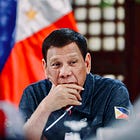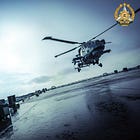Can the Philippines count on ASEAN in convincing China to sign the long-delayed regional Code of Conduct?
This piece is freely available to read. Become a paid subscriber today and help keep Mencari News financially afloat so that we can continue to pay our writers for their insight and expertise.
The Philippines hopes the long-delayed Code of Conduct on the South China Sea (COC) between the Association of Southeast Asian Nations (ASEAN) and China will be signed next year when it hosts the annual regional meetings.
It’s wishful thinking.
The last time Manila hosted the ASEAN summit in 2017, during the time of President Rodrigo Duterte, a COC framework was agreed, the basis of the current working draft. But that was a different time. It was when the Philippines, under Duterte, was a close friend of Beijing.
Both countries described that time as the “Golden Age” of bilateral relations when Duterte distanced the Philippines from the United States. He even suspended a military-to-military agreement, the Visiting Forces Agreement, allowing the Americans to deploy troops in the country for training and exercises. It was only restored in the last days of the Duterte administration.
Truth matters. Quality journalism costs.
Your subscription to Mencari (Australia) directly funds the investigative reporting our democracy needs. For less than a coffee per week, you enable our journalists to uncover stories that powerful interests would rather keep hidden. There is no corporate influence involved. No compromises. Just honest journalism when we need it most.
Duterte even ordered to scrap a “Phiblex”, a Marine amphibious landing drills in Zambales and banned the Philippine Navy from taking part in joint patrols with the US Navy in the West Philippine Sea. However, relations between Manila and Beijing soured and deteriorated since 2022 when President Ferdinand Marcos Jr came to power.
Marcos veered away from China and slid closer to the United States, Beijing’s chief rival. For instance, China was angered when the Philippines allowed the United States to deploy the Typhon missile system, a Mid-Range Capability (MRC) launcher that could target Chinese coastal cities with Tomahawk and SM-6 missiles.
“Phiblex” returned under a new name, “Kamandag”, and more drills were added, including Cope Thunder, and new multilateral activities were introduced with other like-minded countries, like “Sama-Sama” and “Kasangga”.
There had been 12 iterations of the maritime multilateral cooperative activities (MMCA) in the West Philippine Sea since 2024, and 7th this year. Can the Philippines count on the other 10 member countries of ASEAN to help in convincing China to sign the regional Code of Conduct? ASEAN remains divided when it comes to dealing with China. It really depends on each member-states national interests in dealing with China, politically and economically.
When it comes to security relations, it’s more clear. ASEAN states stayed away in most of these Philippine-led military activities, but, sometimes, they sent observers in some of the events. It is understandable that some states, like Brunei, Cambodia, Laos, and Myanmar will not be interested to join in the Philippine-led military activities with the United States and other Western states.
They have closer relations with Beijing and are economically too dependent on Chinese trade, investments, and development aid. If ASEAN states cannot participate in purely military activities, they all must be together in pursuing a common political and security agenda - ensuring a stable and secure regional security.
ASEAN states should support the Philippines in its efforts to resist China’s illegal, aggressive, coercive, and dangerous (ICAD) activities in the South China Sea. Afterall, other ASEAN states, like Brunei, Malaysia, and Vietnam were also at the receiving end of Chinese harassment and intimidation tactics.
ASEAN states must stand together and cooperate to persuade China to respect the rule of law and sign immediately the Code of Conduct to lower and calm tensions in the region. It is interesting to note that China has not gotten any support from any country in its excessive and illegal claims on the South China Sea.
China’s close allies in Southeast Asia were also silent on the ongoing dispute in the South China Sea. It neither supports the Philippines and China, unlike countries outside the region. Most ASEAN states were also muted when Manila won a landmark legal ruling from the International Tribunal for Law of the Sea (ITLOS) in July 2016.
Every time China harasses Philippines’ public vessels and fishermen in the West Philippine Sea, there’s always zero reaction from other ASEAN countries. It appears the Philippines is alone and other ASEAN states did not experience China’s bullying. However, politically, ASEAN is moving in the same direction.
For instance, China’s allies within ASEAN have also agreed with the rest of Southeast Asian states to conclude a legally binding Code. It’s only China which delays the conclusion of the negotiations and signs the deal.
Sources in the diplomatic community say only China could decide when and where the Code can be signed as it continued to deploy its Navy, Coast Guard, and militia vessels to gain full control of the disputed waters where $3 trillion worth of seaborne goods pass every year.
China has been trying to push away the US and other Western states, including Japan, from the South China Sea, converting it into its buffer zone. Perhaps, when China has full control of the disputed waters, it will agree to sign the Code of Conduct. ASEAN has a big role in persuading China to accelerate the conclusion of a regional, legally-binding Code of Conduct. ASEAN as a cohesive political force can put pressure on China to sign the Code, respect the rule of law, and honor the 2016 arbitration ruling.
The opinions expressed are those of the author and do not necessarily represent the views of this publication.
Got a News Tip?
Contact our editor via Proton Mail encrypted, X Direct Message, LinkedIn, or email. You can securely message him on Signal by using his username, Miko Santos.
Sustaining Mencari Requires Your Support
Independent journalism costs money. Help us continue delivering in-depth investigations and unfiltered commentary on the world's real stories. Your financial contribution enables thorough investigative work and thoughtful analysis, all supported by a dedicated community committed to accuracy and transparency.
Subscribe today to unlock our full archive of investigative reporting and fearless analysis. Subscribing to independent media outlets represents more than just information consumption—it embodies a commitment to factual reporting.
Not ready to be paid subscribe, but appreciate the newsletter ? Grab us a beer or snag the exclusive ad spot at the top of next week's newsletter.







